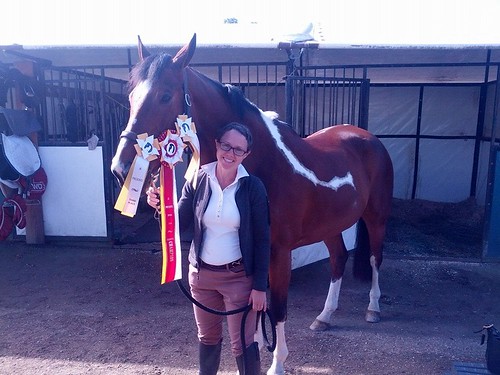adventure time 2: over fences
Thought I might take Gunther to a show.

He was a good boy.


A very good boy!

Thought I might take Gunther to a show.

He was a good boy.


A very good boy!

Posted in adventure time, horses are pretty | Comments Off on adventure time 2: over fences
Thought we might go sailing.

Sighted the enemy.

Look how perfidious!

Told you so.



We showed them what for.

Violence is never the answer.

Posted in adventure time, mindfulness | Comments Off on adventure time 1: the high seas
We’re back in the first person. Wilmet, the narrator of Glass, is the smuggest and most unpleasant of Pym’s heroines. I should confess to my own feelings of unpleasant smugness when she gets her (surprisingly progressive) comeuppance.
I’m hugely enjoying the continuity in the Pym universe. Wilmet is Archdeacon Hoccleve’s distant cousin. She and her friend Rowena knew Rocky Napier in Italy, and Wilmet’s husband Rodney has a dalliance with Prudence. Best of all, Rowena reads to Wilmet out of a magazine, and what she reads is Catherine Oliphant’s fictionalized account of the moussaka scene.
But the weirdest moment by far in Glass is when *I* show up in it.
I thought he might be a colonial, perhaps a New Zealander. I remembered clever moody passionate girls, like Katherine Mansfield, striving to break away from the narrowness of their environment, almost nineteenth century Russian in their yearnings, hating the traditional English Christmas in the middle of summer and the sentimental attitude toward the Mother Country.
Since women like me are represented in English literature with considerably less frequency than most breeds of dog, it always comes as a bit of a shock.
Austen parallel: Mansfield Park. (It’s “about ordination.”)
Dulcie, the protagonist of Fond, is a tragic figure because she lives in a world without Google. Her ability to Googlestalk before the fact is both impressive and creepy. She gets one of the best proposal-rejection scenes so far. I was starting to think that this novel took place outside the Pymiverse until Dulcie ran into Wilmet at a castle.
Austen parallel: Dulcie thinks she’s in Persuasion, but I think she’s in Northanger Abbey.
This marks the break in Pym’s career. She was bumped off the midlist after Fond and didn’t get anything published for another eighteen years. A good time for me to take a break too, I think.
Posted in bookmaggot, england | Comments Off on a glass of blessings/no fond return of love, by barbara pym
Sexy, independent Catherine Oliphant is the best Pym heroine so far. No frustrated literary yearnings for her: she writes romantic fiction for women’s magazines. Even as she catches her beloved in the act of having an intimate dinner with her replacement, she thinks to herself that their moussaka will be getting cold. She chooses her next crush on the basis of his resemblance to an Easter Island statue. I adore her.
The church takes a step back in this book and the vacuum is filled by anthropology. The resulting shabby-intellectual milieu is surprisingly reminiscent of Iris Murdoch.
Posted in bookmaggot, england | Comments Off on less than angels, by barbara pym
This is a lot of people’s favourite Pym novel, including Jilly Cooper’s and Pym’s herself. Maybe that’s because it is in part a retelling of Emma, one of Austen’s most charming books. As well as shuffling her own deck of archetypes, Pym has shuffled in several from Austen’s pack.
Prudence disliked being called ‘Miss Bates’; if she resembled any character in fiction, it was certainly not poor silly Miss Bates.
No, when she thought it over, Jane decided that she was really much more like Emma Woodhouse.
The romantic stranger is the widower Fabian Driver, who was serially unfaithful to his dead wife Constance (ouch.) The clergyman is married again, but Jane, his wife, is neither fish nor fowl: too ineffectual to be a helpmeet like Agatha Hoccleve, too lazy to be a thinker like Helena Napier. In her notes on the novel, Pym’s thumbnail sketch of Jane is devastating in its cruelty:
The wife sits on committees. Is literary, but no time for that now – perhaps had even wanted to do research (‘The influence of Somebody on Something’). Missed opportunities. Jane felt she has not been really successful – but a happy marriage and a child, people might say rather reproachfully, wasn’t that something?
And yet readers love Jane, and for good reason. Like the children of Elfine Starkadder and Richard Hawk-Monitor, she blazes with poetry in her soul. Her well-intentioned but blundering efforts to hook Prudence up are, like Emma Woodhouse’s, not punished with success. Only one marriage proposal is accepted in this book, and it is heartily regretted by almost all concerned.
Cameos: Dora’s awful brother William interrupts Prudence and Geoffrey to warn them against ordering the pate. We are given tragic news about Mildred Lathbury.
Posted in bookmaggot, england | Comments Off on jane and prudence, by barbara pym
If Pym is telling stories from the point of view of God then in this novel, which is told in the first person, God is a spinster who refers to herself half-ironically as one of the excellent women. Dunno about you but I’m good with that.
Did we really need a cup of tea? I even said as much to Miss Statham and she looked at me with a hurt, almost angry look. ‘Do we need tea?’ she echoed. ‘But Miss Lathbury…’ She sounded puzzled and distressed and I began to realise that my question had struck at something deep and fundamental. It was the kind of question that starts a landslide in the mind.
The character cards from Some Tame Gazelle are taken up and shuffled another way. This time it is the clergyman who lives with his anxious, ineffectual sister. The bluestocking is married to the dashing hero just back from Italy, and this bluestocking has not transformed herself into an exemplary wife. Where Agatha Hoccleve sublimated her ambition to push Henry into his archdeaconate, Helena Napier is a career anthropologist and to hell with domesticity. This makes her husband entertainingly cross. (Archdeacon Hoccleve himself turns up halfway through this book to give an annoying sermon and it is hilarious, because Barbara Pym loves us and wants us to be happy.)
Despite these variations, the engine of both plots is the same. Women exercise their agency in the only way available to them: by indignantly refusing horrible offers of marriage. It’s Lizzie rejecting Mr Collins over and over again, and it is glorious. Given the Internet, Pym would have dispensed dating advice as sublime as that of Mallory Ortberg. (“Remember that you always have the option of taking to the sea.”)
The unmarriage plot is only one of the ways in which Excellent Women precisely geolocates Pym in the terrain of English literature. There is also the character of Rocky Napier, who wanders in from spending the War years with Nancy Mitford’s Fabrice de Sauveterre and Charles-Edouard de Valhubert. There is Mrs Bone, whose dread of the Dominion of the Birds is clearly listed in the DSM beside Aunt Ada Doom’s Something Nasty in the Woodshed. Maybe most disturbingly there is the anthropologist Everard Bone, whose unselfconsciously monstrous selfishness anticipates both Nelson Denoon in Mating and Richard Churchill in Half of a Yellow Sun.
Posted in bookmaggot | Comments Off on excellent women, by barbara pym
‘Miss Liversidge is really splendid,’ she declared and then wondered why one always said that Edith was ‘splendid’. It was probably because she hadn’t very much money, was tough and wiry, dug vigorously in her garden and kept goats.
Barbara Pym is the most badass writer who ever lived and I am going to tell you why.
He was smiling to himself in a sardonic way that Belinda found very disconcerting. It was unsuitable for a clergyman to look sardonic.
This sardonic clergyman is a very lightly fictionalized Henry Harvey, the great love of Pym’s life. She met him at Oxford and he sounds like a right tosser. Pym handles this so well! She vivisects and impales him both here and in her own journals with unflinching and scientific rigour. It is very suitable for a novelist to be sardonic; it is an especially suitable posture for a novelist in love.
Like Jane Austen, though, Pym is frequently misconstrued as cosy. It’s all in the subject matter: gossipy Church of England parishioners. If you find such people charming, you might miss the sharpness in Pym. If they make you think of serial murderers and Hot Fuzz then come, sit by me.
Sharp and unflinching as she is, Pym is not herself a serial murderer but something closer to a vet. Consider this curious passage:
‘What’s this?’ asked Agatha sharply, pointing to the Times-shrouded parcel which Belinda had put into a corner.
‘Oh, that’s Lady Clara’s marrows,’ Belinda explained.
‘Wrapped in newspaper?’ Agatha’s tone was expressive. ‘I’m afraid that won’t do at all.’ She produced some blue tissue paper from a secret hiding-place and began to undo Belinda’s parcel.
‘Oh, dear, I’m so sorry, I didn’t know there was any other paper,’ said Belinda in confusion. ‘I saw them lying there and I thought perhaps they ought to be wrapped up and put aside in case anybody sold them by mistake.’
‘I don’t think anybody would be so stupid as to do that,’ said Agatha evenly. ‘They were the two finest marrows on the stall, I chose them myself.’
‘Oh, well …’ Belinda gave a weak little laugh. All this fuss about two marrows. But it might go deeper than that, although it did not do to think so.
‘Perhaps you would like to go and have tea,’ said Agatha, who was having difficulty with the bulk of the marrows and the fragility of the tissue paper and did not want Belinda to see.
You’d never get away with a passage like this nowadays (Some Tame Gazelle took fifteen years to find a publisher but eventually came out in 1950). Your editor would tell you you’d made a mistake in the last sentence, where the narrative suddenly switches to Agatha’s point of view.
This is, of course, bullshit. Pym is one of the most controlled and surgical of writers. She wields third person omniscient like an edged weapon. If the POV switches it’s because she meant it to switch.
So who’s talking? Whose gaze is it that pierces both Belinda and Agatha right through to the bone (“all this fuss about two marrows”)? Who measures the tension between them (Agatha has been married to Belinda’s beloved Henry for thirty years) and all their weaknesses and evasions, and yet doesn’t condemn them? By whom are they so seen and known and accepted for what they are?
Barbara Pym is the most badass writer because her books are told from the point of view of God.
Posted in bookmaggot, england | Comments Off on some tame gazelle, by barbara pym
© 2009 “Yatima” · Powered by Wordpress and Bering Theme 2025